Judy Collins - Interview
by Lisa Torem
published: 30 / 9 / 2016
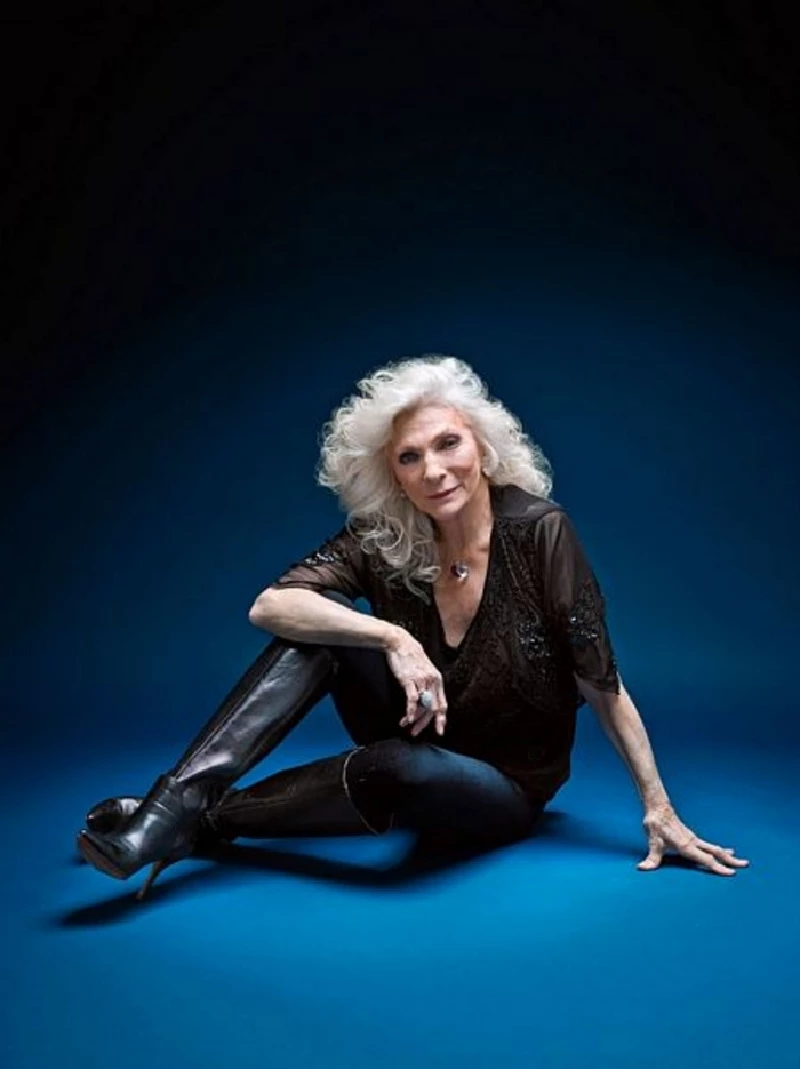
intro
Judy Collins returns to talk with Lisa Torem about the creation of her brilliant new co-written album with Ari Hest, ‘Silver Skies Blue’, her life as an author and touring
Judy Collins has jogged with presidents, given hope to grieving parents and siblings, and consistently served as a proactive beacon of hope and justice for the marginalised, since her remarkable career took hold in the 1960s. She charmed a nation in 1967, singing about “Ice-cream castles in the air” on the Joni Mitchell-penned ‘Both Sides Now’ for her debut, ‘Wildflowers’. She would go on to garner a Grammy for her moving rendition of Stephen Sondheim’s Broadway chestnut, ‘Send in the Clowns’. Judy currently continues to celebrate the composer’s legacy through public television programming. Besides recording award-winning albums over the course of fifty years, she boasts touring 100-plus engagements annually. And many attest to Judy’s triple-ranged voice as being as elegant as ever: rich, vibrant and true to every phrase, whether set against piano, acoustic guitar or an acclaimed symphony orchestra. And her many contributions have been noted professionally by her peers. ‘Born to the Breed: A Tribute to Judy Collins’ includes ballads performed by Rufus Wainwright, Dolly Parton and her longtime colleague, Leonard Cohen, at whose insistence she forged her own songwriting path, years after introducing Dylan, Paxton and Cohen to appreciative audiences via her Greenwich Village beginnings. Last year’s ‘Strangers Again’ featured the vocal talents of Willie Nelson, Jackson Browne, Jeff Bridges, Glen Hansard and Ari Hest. In her second interview with Lisa Torem, Judy elaborates on how the unique Collins-Hest alchemy led to the creation of the newly-released ‘Silver Skies Blue’, a rich recording with sonorous harmonies, socially-conscious savvy and lithe melodies. Judy also talks about her love affair with literature, as both reader and author. Her evocative memoirs, including ‘Sweet Judy Blue Eyes: My Life in Music’ and ‘Singing Lessons’ reveal her overall resilience, creative integrity, love of the arts and continued commitment to social change — Judy has served as an ambassador for UNICEF in Asia and Europe and continues to promote social awareness and activism worldwide through her international perfomances, writings and keynote speeches. Pennyblackmusic graciously welcomes back Judy Collins. PB: Hi Judy. Congratulations on ‘Silver Skies Blue’. It’s a beautiful album. JC: Thank you so much. PB: On last year’s ‘Strangers Again’, you sang some great duets with the likes of Glen Hansard and Ari Hest, but this time around you’ve made the decision to not only sing but co-write and arrange with Ari. What prompted this major decision? JC: We liked working on ‘Strangers Again’ so much that we decided to try our hand at writing and came out with a dozen or so songs and then said, "Why don’t we record them and then sing them together on the road?" Which we’re doing. PB: ‘Drifting Away’ is a stand-alone song. If one looks at the lyrics, it’s pure poetry. Was that song inspired by an actual place, a memory of a place or an imagined place? JC: Well, I think imagination has certainly come into it, but we were both thinking about having trips to Hawaii and the islands to get away from the stress and strain of all the travelling that we do. PB: Did the song begin with the lyrics or a riff or a session of conceptualising? JC: What usually happens with songwriting, and it happened in a number of songs on this album, one of us will start with an idea and we’ll develop that together and that’s what happened with this one. We accomplished it together out of a spark of something that comes up in one of our minds and that’s what collaboration is; somebody’s got to have a brainstorm (laughs). PB: Was the point to work on each song separately or was there an overall mood that you wanted to convey? JC: We wrote with an attention to what felt right at the time and when you do that it all seems to come together and be of a piece and the purpose was not to write with a theme, necessarily, but I do think that both of us had some wonderful ideas that seemed to reflect off of one another. I think when you work with somebody and you’re actually sitting together in the studio, which we did — we worked up in my apartment most of the time because that’s most convenient for both of us. It wasn’t done online or anything, which I know is certainly done nowadays, because people don’t always have a chance to get together in the same room, but we were able to sit down over the course of a year or so and actually come up with these. We’d have something to eat and talk and gossip and think about things, and then we’d go in and write for a while and then a couple of hours later we’d go our own ways and then come back together to work on the harmonies, finish up the poetry and try out new ideas. So I think that has a tendency to then make the whole thing of a piece. PB: You and Ari really nailed those harmonies. JC: That’s why I’m recording and singing with him. That’s a natural component of what both of us do. It’s very rare, by the way, even with accomplished musicians, to find a voice that blends terribly well with your own - that’s why I’ve never done it before in a whole album of songs that we’ve written together. PB: ‘Run’ has a gentle melody, but strong, political overtones. You’ve been proactive in raising social consciousness since the start of your career, but was there a particular event that triggered those lyrics? JC: Both of us had the feeling that things are getting out of hand. We both felt confused and wanted to attack something from a poetic point of view and musical point of view that might express that frustration. I think a lot of people feel it. You do want to run away from it but then you realise you’ve got to take action where you can. You have to live your life with ethics and commitment. That’s really the solution, I believe. PB: ‘Run’ definitely inspires action. JC: It makes me think about what each of us can do. Getting more specific, I wrote a song, ‘Lilies of the Valley’ about spousal abuse and it’s a very tough song, really. I think ‘Run’ is more the idea that people kind of get annoyed at each other and lose their tempers at each other and we wanted to address that and say, "Can’t we find another way?" Like Rodney King always said, "Why can’t we just get along?" PB: Leonard Cohen encouraged you to write. I believe Andrew Loog Oldham locked the Stones in a hotel room and made them write. Was it a drastic undertaking at the time? JC: Very. Although I was never locked in a hotel room, which I should have been. It’s a very good idea and I’m sorry I didn’t think of it, but it has been a natural default position for me ever since. I’ve written probably close to 100 songs that made it out, maybe 75 of which made it into recordings of mine. My own personal writing has been really given a shot in the arm by writing together with Ari because now I’m on my own and writing every day. I was always writing regularly but not always every day and I found a way now to not put pressure on myself to do that. I started the 90 and 90 routine and my husband said, "Why don’t you keep writing for a year? Then you’ll have a whole book of poetry and/or songs at the end of the year." I’m keeping up with it. At this point I'm at 220 and 219 days. When I get to the piano and work on them, some of these songs are definitely going in the direction of recordable and singable for me. But it’s something that I’ve had to work at consistently over the years. PB: So how long is each daily session? JC: It doesn’t matter. And it doesn’t matter if I don’t like it either. PB: Let’s look at an early song, ‘New Moon over the Hudson’. “Central Park at midnight, the carriage in the snow…” You juxtapose your New York existence with the landscape of Ireland. Can you elaborate? JC: Now I’m doing most of this on my computer or my iPhone, but I have always kept songwriting notebooks ever since I started, after Leonard said, "Why aren’t you writing your own songs?" I keep them and then I can look back — sometimes I’ll get a good refrain or idea, and years will go by and it will come back up. When I went to Ireland to do this show in 2013, Ari and I sang one of his songs . I had also been very, very Irish that year. I’d gotten inducted into the American Irish Foundation and into the American Irish in the States, and the Irish American in Ireland. The Irish American Magazine did a big piece on me here, and the woman who publishes that said, "You need a genealogist to find out more about your Irish history", and in doing that my genealogist came up with a book and found out that I had relatives who had come in the 1730s; that I had great-great-great grandfathers both in the Revolutionary War and the Civil War. So I was thinking about that and I ran across the line, “A new moon over the Hudson and the stars are shining bright”, so that kicked it off and then, of course, “Central Park at midnight” was a refrain that I had written along with something else. I put it together like a patchwork quilt, really, and also, I had sung a song from ‘Brigadoon’ at one of my nephew’s weddings the year before and the shape of that song really led me to write ‘New Moon over the Hudson’ with that bridge, “There are miles of roads between us, rivers we have crossed…” and it’s in a different kind of musical shape than I usually use, so it was a combination of a lot of things. It gave me something that reflected my own personal history while doing the Irish song. One of the other songs that I sang on that show was a song from 1982, ‘Granddaddy’, about one of my Irish grandfathers, so that was a nice thing to be able to have there, too. PB: Is it rewarding to write about your family? You’ve written ballads about your parents, too. JC: I wrote ‘In the Twilight’ after my mother’s death. I was actually writing the song about my father while he was dying, although I didn’t know he was dying, but he never heard it. My mother would be really amused that I wrote a song about her. PB: ‘Born to the Breed’ was a tribute album recorded and inspired by your work. Did the recording artists get it right? JC: Oh, yeah. I had a wonderful time working and talking with and finding those artists. I ran into one of the British artists at the Folk Alliance one year, and she said, "I’ve got a list of ten songs on the back of my guitar and they’re ten of the best songs that have ever been written and one of them is yours — ‘My Father’, and I’d love to record that song." It was that, combined with thinking about other songs that other people might like to record…It made me very happy to see the way other people did them. PB: Do you find that you interpret differently songs you’ve written as compared to covers? JC: I think that you have to demand the same thing in each case. You can write hundreds and hundreds of songs — just a handful of them will come out. You have to write a lot to get anything out that’s workable. And I suppose, in a way, that’s true for the songs you might find in the world, because out of all the songs you hear, obviously, there’s only a handful that are going to be suitable for you. In that case, it’s a similar kind of process. And you have to be in love with the song you’re writing in order to keep working on it and see if you can finish it, and that doesn’t always happen. There are melodies that stick. Right now, the process that I’m doing is really interesting for me because I’m writing every day and then when I get to the piano and sit down and work with the song I see whether I can find a hook that’s right and work with it until I’ve got a melodic structure and put it in my iPhone and then I listen. And I wait to find something that really, really turns me around. And that’s the same way that I find other songs that I record. It’s a similar process. PB: What was your role on the radio show, ‘Woody’s Children’? JC: I’ve been interviewed a lot and have sung a lot on his programme. That’s all. I’ve been a guest over the years. And I am one of Woody’s children, I think. Woody Guthrie wrote about 3000 songs in his life. I’m working on it. He wrote about everything. He wrote about love, war and peace and children. I think that the natural thing one does, if you’re in the loop, which I’m trying to be and I try to be when I’m writing, whatever it is that is coming up as the subject matter, you write about. And that’s a very exciting process. If you’re in this to be an artist for your whole life, you have to be in touch with what’s around you. I read a lot of poetry anyway and I know a lot of songs and I look at a lot of songs and listen. I have a life, so my life is filled with all kinds of experiences: difficult ones and wonderful ones. I try to write about what’s coming up in the day, just like I would write in my journal about what’s coming up in the day and I have found, by the way, that I’m not writing in my journal nearly as much. In fact, this year I’m not keeping a journal at all, which is quite unusual for me. It’s all coming out in these songs and we’ll see how that goes (laughs). PB: Since 1987 you’ve written three memoirs, a novel and two essential books about the healing process. What has being a prolific author meant to you? JC: I think it’s essential to my life. I have another book coming out in February of next year, called ‘Cravings’: How I Conquered the Food’. It’s about my eating disorder; the history of that and I tell the whole story, but I also focus on about a dozen-and-a half diet gurus of all kinds and do little biographies of them. I know that I have to be writing something all the time. I grew up in that period of time, I think, where we all read and certainly in high school, we wrote. In junior high, I remember walking out from my bedroom when I was four or five and saying to my parents, "Oh, listen to this, I just wrote a poem about the rain." It was Los Angeles so it was unusual that it was raining. That’s what must have caught my attention. PB: What keeps you grounded when you’re not performing or writing? JC: I love to go to movies and I love to exercise and I love to have a good time with my husband. I love to read. I am a massive reader. I just discovered a new writer, Peter Spiegelman. He has a new book out, ‘Dr. Knox’. I’m always eager to find the latest, whether it’s Joe Finder or the Norwegians or the Swedish writers — Ron Chernow. I read history and mystery. Those are both my focuses and I go through a few books a week (laughs) and that’s very important to me. PB: History or mystery—those are the big ones? JC: Those are the big ones, although I’ve got a couple of books on tape for when we’re driving up to the Berkshires tomorrow. I hope the reader is good. I’ve got ‘Moby Dick’ which I’ve never heard—I’ve read ‘Moby Dick’ at different times in my life, but I’ve never listened to it. And I’ve got ‘White Fang’, you know, Jack London. So neither one is history and neither one is mystery (laughs). Although I think, when you listen to ‘Moby Dick’, you’re probably thinking of the story of The Essex, the ship that was rammed by the whale, which is actually a true story, a history, a whaling history. ‘Moby Dick’ was written, of course, by Melville. Melville was a sailor, who spent some of his time making a living on a whaling ship and he heard this story and recreated something similar in ‘Moby Dick’. PB: Given that you’re read a lot of history, is there a particular era you wish you could have experienced? JC: I’d like to hang out in the late 19th century. I like that belle époque. I collect paperweights, and a lot of wonderful paperweights were made during that period - Saint-Louis and Baccarat and all these paperweight manufacturers and artists in the paperweight field. And I like that period, before the first World War, there were probably a lot of problems, but I think I would have liked being in that era. It was an exciting time in the States. I love reading about peoples’ lives. PB: What is the best advice and/or worst advice you’ve ever received? JC: (Laughs). In the most recent past, I only showed my new book, ‘Cravings’ to a couple of people and it’s actually being published by Nan Talese/Random House, who is an old friend and who published my first big memoir in 1987. But before that, the book was sent to one of my editors, he’s a guy and he wrote a note back to my agent, “If Judy publishes this book, it will ruin her life.” (Laughs). I don’t know whether that’s the best or the worst. My writing friends told me that that would make a very good blurb for the book. (‘Cravings’ will be out in 2017.) But the best advice I’ve ever had was probably from my father. “Never think about how big the audience is. Every single person counts.” That’s probably the best advice. PB: After all these years, what are you thinking before you go onstage? JC: I’m very old-fashioned. I’m very old-school. I’m very disciplined. I keep myself fit. I exercise. I eat right. I don’t drink. I don’t scream. I don’t smoke. I have a timetable. I must be there at a certain time. I must lay out my makeup. The lighting (must be) right. I do my rehearsal. So I’m focusing on the process and I’m focusing on the lyrics. So that’s what I do before I go onstage and I usually pray. Those are the things I do and that is as much a part of the performance as is singing the music. PB: Can you update us on future plans? Touring and other projects? JC: I’m going with Ari to Hawaii next year. That will be nice. I’m on the road all the time - I do about 120 or 130 shows a year. And I just finished a big Sondheim project for PBS. So that will be coming up in the Fall. It’s a whole bunch of Sondheim songs with me and an orchestra. We recorded it in Denver on Mother’s Day in May. I’ve just seen the completed television show and WCBH in Boston will be going out with it at the end of August, so that’s exciting. I wanted to do it for about twenty-five years and finally we got the green light from PBS and we got it together and I’ve been working on the songs for a couple of years, so it’s been great. And at the end of August, I will record all of the songs, or at least ten of them — seven from the show and three more that I didn’t do with piano. I’ve always wanted to do that. And then, of course, I’m working on these new songs and they will come together and I’ll do them sometime, and I have another big touring plan with an artist that I had a history with forty years ago, so everything is happening as it should. PB: Thank you.
Band Links:-
http://www.judycollins.comhttps://www.facebook.com/judycollinsofficial/
https://en.wikipedia.org/wiki/Judy_Collins
Picture Gallery:-
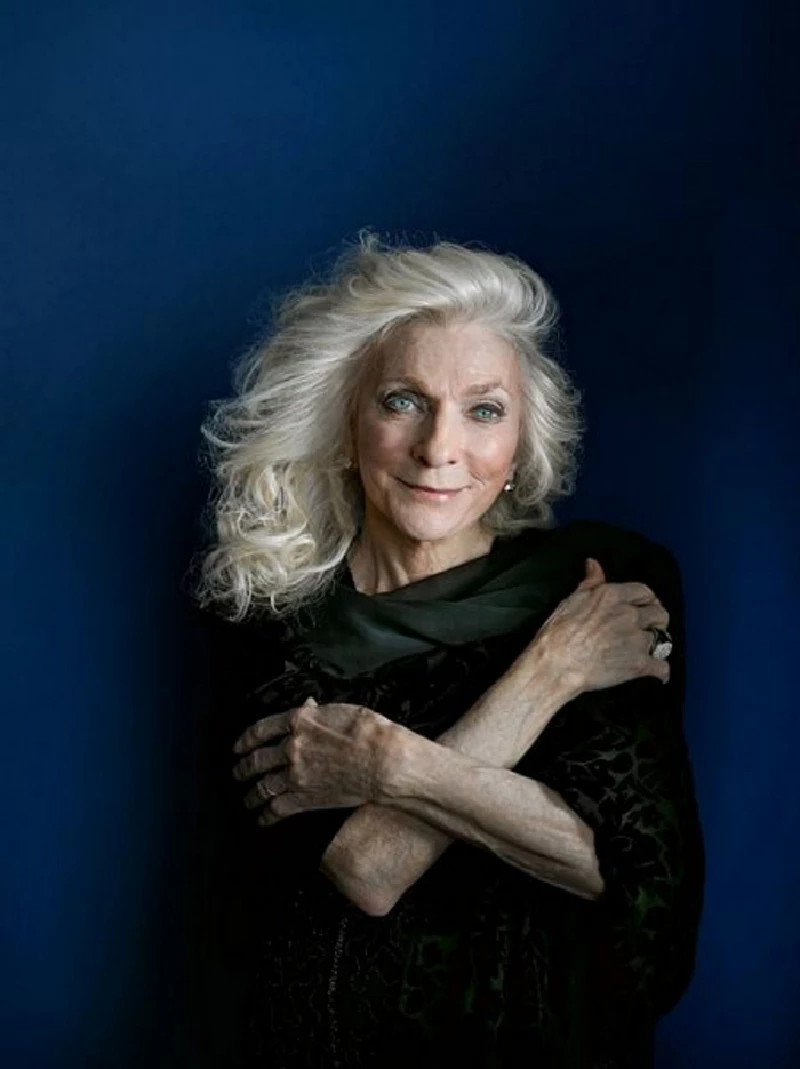
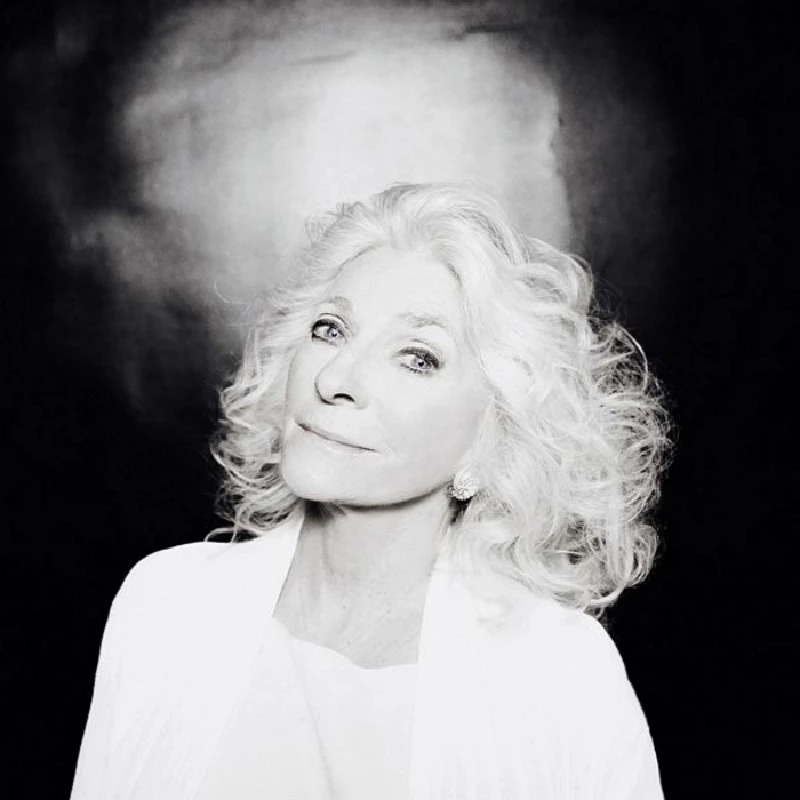
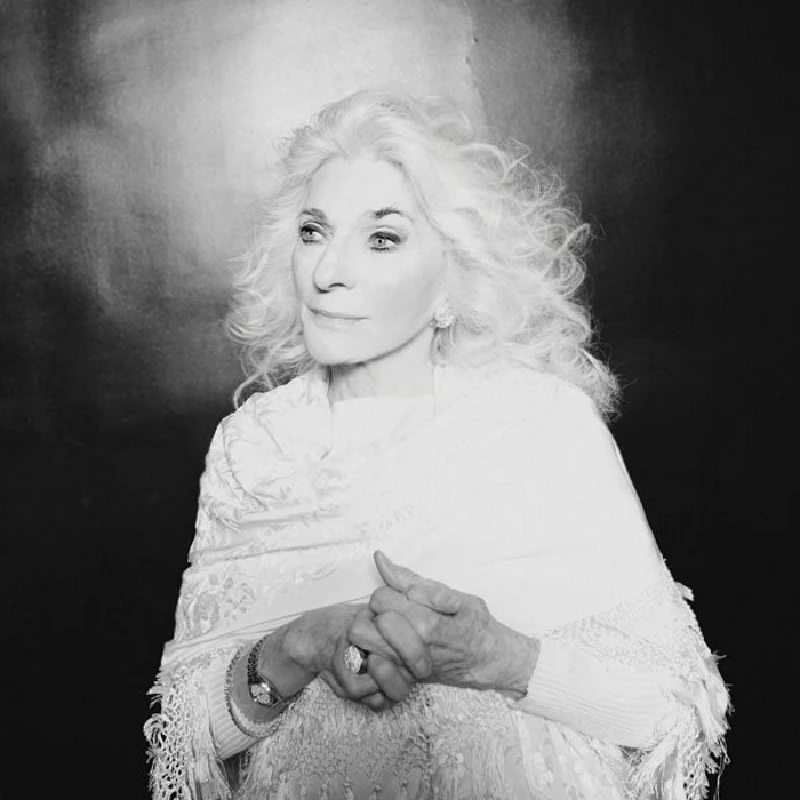
interviews |
|
Interview with Simon Crowe (2013) |
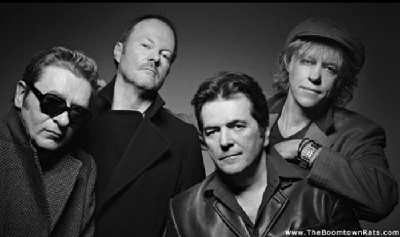
|
| Paul Waller speaks to Simon Crowe, the drummer with 70's/80's punk/new wave band the Boomtown Rats, about his group's history and their recent reformation |
| Interview (2013) |
live reviews |
|
Old Town School of Folk Music, Chicago, 13/1/2023 |
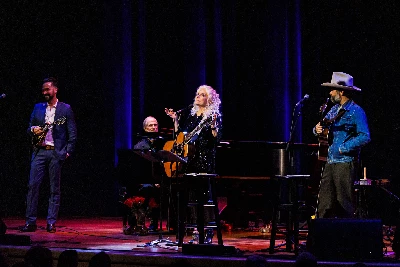
|
| American folk music icon Judy Collins plays a mesmerizing show featuring material from her most recent album ‘Spellbound’ alongside songs from her storied seven-decade career. Lisa Torem reviews |
| Ravinia Park, Chicago, 6/6/2013 |
most viewed articles
current edition
Carl Ewens - David Bowie 1964 to 1982 On Track: Every Album, Every SongArmory Show - Interview with Richard Jobson
Colin Blunstone - Thalia Hall, Chicago, 16/7/2025
Visor Fest - Valencia, Spain, 26/9/2025...27/9/2025
Bathers - Photoscapes 1
John McKay - Interview
Loft - Interview
Billie Eilish - O2 Arena, London, 10/7/2025
Robert Forster - Interview
Sir Tim Rice - Interview
previous editions
Heavenly - P.U.N.K. Girl EPManic Street Preachers - (Gig of a Lifetime) Millennium Stadium, Cardiff, December 1999
Beautiful South - Ten Songs That Made Me Love...
Oasis - Oasis, Earl's Court, London, 1995
Pixies - Ten Songs That Made Me Love...
Boomtown Rats - Ten Songs That Made Me Love....
Prolapse - Interview
Trudie Myerscough-Harris - Interview
Peter Perrett - In Dreams Begin Responsibilities Interview Part One
Simon Heavisides - Destiny Stopped Screaming: The Life and Times of Adrian Borland
most viewed reviews
current edition
Amy Macdonald - Is This What You've Been Waiting For?Sick Man of Europe - The Sick Man of Europe
Lucy Spraggan - Other Sides of the Moon
Phew, Erika Kobayashi,, Dieter Moebius - Radium Girls
Davey Woodward - Mumbo in the Jumbo
Alice Cooper - The Revenge of Alice Cooper
Bush - I Beat Loneliness
Suzanne Vega - Flying With Angels
Blueboy - 2
Cynthia Erivo - I Forgive You
Pennyblackmusic Regular Contributors
Adrian Janes
Amanda J. Window
Andrew Twambley
Anthony Dhanendran
Benjamin Howarth
Cila Warncke
Daniel Cressey
Darren Aston
Dastardly
Dave Goodwin
Denzil Watson
Dominic B. Simpson
Eoghan Lyng
Fiona Hutchings
Harry Sherriff
Helen Tipping
Jamie Rowland
John Clarkson
Julie Cruickshank
Kimberly Bright
Lisa Torem
Maarten Schiethart